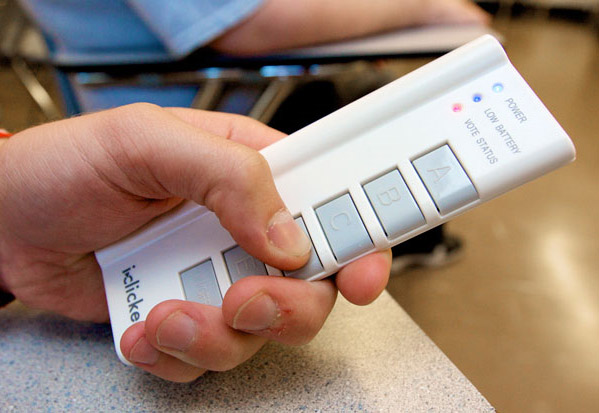 With constant media stimulation, increase in competitiveness, and stress overload, “Is it possible to slow down” (1)? Our culture can be self-driven and individualistic so it is no surprise that for many, time is a finite resource that is draining away. As a result, we try to do as much as we can in a very short time period. Our minds are filled with constant distraction, thus limiting opportunities for self-reflection to ask oneself “Am I well or am I happy?” (1).
With constant media stimulation, increase in competitiveness, and stress overload, “Is it possible to slow down” (1)? Our culture can be self-driven and individualistic so it is no surprise that for many, time is a finite resource that is draining away. As a result, we try to do as much as we can in a very short time period. Our minds are filled with constant distraction, thus limiting opportunities for self-reflection to ask oneself “Am I well or am I happy?” (1).
We’d like to believe that we have been a good friend, partner, or child at various points in our life. However, upon remembering that significant person in your life, do you know or have you ever asked what were the moments when they were the happiest? The times when they were crying from tears of joys to the time when they felt the most accomplished? Surprisingly for many, we are unaware of these stories that ultimately define whom that individual has become today. We mindlessly pass every day without pondering about the conversations that we had or the connections that were made. By simply being mindful of the questions that we pose, more specifically “questions that people have been waiting for their wholes lives to asked … because everybody in their lives is waiting for people to ask them questions, so they can be truthful about who they are and how they become what they are,” as beautifully said by Marc Pacher (2).
So what is the action plan?
1.Invite people to tell stories rather than giving answers. Instead of “How are you” substitute
- What’s the most interesting thing that happened today?
- What was the best part of your weekend?
- What are you looking forward to this week? (3).
2. Enter a conversation with the willingness to learn something new
- Celeste Headlee in her TED Talk 10 Ways to Have a Better Conversation describes how she frequently talks to people whom she doesn’t like, and with people whom she deeply disagrees yet is still able to have engaging and great conversations. She is able to do this as she is always prepared to be amazed and she seeks more to understand rather than to listen and state her own opinion and thoughts.
3. Lastly “being cognizant of [your] impact is already the first step toward change. It really does start at the individual level” my friend once said (5).
- Brene Brown in her Power of Vulnerability talk said, “Many pretend like what we’re doing doesn’t have a huge impact on other people”. But we’d be surprise of what we are capable of when you allow yourself to be vulnerable as this “can be the birthplace of joy, of creativity, of belonging of love… the willingness to say, “I love you” the willingness to do something where there are no guarantees” (6).
That being said, you don’t have to be the most intellectual or outspoken person in the room, but what is key is the willingness to be open and the questions that are posed. There are many simple things that can be easily integrate into our daily lives, by being more mindful of the question that we ask to ultimately have a more memorable and enriching conversation. In the end it is to have better connections, new understanding and awareness to savor the moment.
At CTE, Microteaching Sessions are offered where you can choose from various topics to conduct an interactive teaching lesson. For my first topic I will be talking about the importance of communication. All participants will not only be giving feedback but will receive constructive feedback and ways to improve from knowledgeable facilitators. It’s a safe environment where you have the chance to present to fellow graduate students from various departments. Many have found these sessions beneficial as you are working on skills relevant to work, field of study or for your own personal growth. I am excited and nervous for this opportunity to talk about something I am passionate about and I hope I can successfully engage others and deliver the content well. In order to help participants formulate an effective teaching plan, the Centre for Teaching Excellence website has provided many resources such as well written guidelines, lesson plans outlines, and facilitators review the lesson before you present.
As a follow-up post, I had the chance to facilitate an hour session for an AIESEC conference for participants from various universities such as Toronto, Waterloo, Laurier, and York, that recently returned from their international exchanges. There were lots of discussion so thank you to the Graduate Instructor Developers, Charis Enns and Dave Guyadeen, and Instructional developer, Stephanie White for their great feedback and helping me make this session more successful!
Sources:
- Carl Honore – TED Talk: In Praise of Slowness
- Mac Pacher – TED Talk: The Art of the Interview
- Chris Colin and Rob Baedeker- How to Turn Small Talk Into Smart Conversation
- Celeste Headlee – TED Talk: 10 Ways to Have a Better Conversation
- Taaha Muhammad – Musings of a 20-year-old who aspires to inspire
- Brene Brown – TED Talk: The Power of Vulnerability
- Centre for Teaching Excellence – Microteaching Session


 Over the years, teachers and professors alike are coming up with new, innovative ways for students to learn and retain information. One of the more recent additions to these gadgets is the iClicker, an electronic response device used in different schools across Ontario. Now, we must ask ourselves a simple question: Is the iClicker actually effective? Through my experience with this gadget, from pondering whether or not to take it out in class, punching in the classroom code, and trying my luck on the day’s set of problems, in no way did it appeal to me.
Over the years, teachers and professors alike are coming up with new, innovative ways for students to learn and retain information. One of the more recent additions to these gadgets is the iClicker, an electronic response device used in different schools across Ontario. Now, we must ask ourselves a simple question: Is the iClicker actually effective? Through my experience with this gadget, from pondering whether or not to take it out in class, punching in the classroom code, and trying my luck on the day’s set of problems, in no way did it appeal to me. 